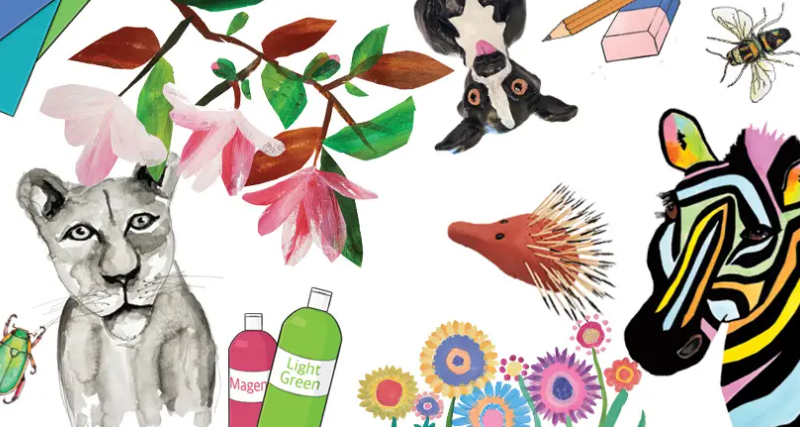The Benefits of Art Lessons for Kids
Art lessons are more than just an extracurricular activity for children; they are an essential component of their overall development. As children engage in various forms of art, they reap numerous benefits that extend beyond the canvas. This article explores the significant benefits of art lessons for kids and why incorporating art into their lives is crucial for their growth.
Enhancing Cognitive Abilities
Art lessons stimulate children’s cognitive development by encouraging them to think critically and solve problems creatively. When children create art, they make decisions about colors, shapes, and compositions, enhancing their ability to process information and think analytically.
Developing Problem-Solving Skills
Art requires children to make choices and solve problems as they work on their projects. This process helps them develop strong problem-solving skills that are applicable in various aspects of life, including academic subjects and everyday challenges.
Fostering Emotional Development
Engaging in art allows children to express their emotions in a healthy and constructive manner. Through their creations, they can explore their feelings, which aids in emotional development and stability.
Building Self-Awareness
Art lessons help children become more self-aware as they reflect on their thoughts and feelings while creating art. This self-awareness is crucial for their emotional intelligence and helps them understand and manage their emotions better.
Boosting Academic Performance
There is a well-documented link between art education and improved academic performance. Children who participate in art lessons often excel in other subjects, as the skills they develop through art—such as concentration, perseverance, and creativity—are transferable to academic learning.
Enhancing Memory and Concentration
Art lessons require children to focus and pay attention to detail, which improves their memory and concentration. These skills are vital for academic success, particularly in subjects that require intensive study and attention to detail, like mathematics and science.
Improving Communication Skills
Art provides a non-verbal medium for children to communicate their ideas and emotions. This can be particularly beneficial for children who may struggle with verbal communication, offering them an alternative way to express themselves.
Encouraging Collaboration
Many art projects involve group work, which teaches children how to collaborate and communicate effectively with their peers. These collaborative experiences help children develop strong social skills and learn the value of teamwork.
Developing Fine Motor Skills
Creating art involves the use of fine motor skills, which are crucial for many everyday tasks. Through activities like drawing, painting, and sculpting, children enhance their hand-eye coordination and dexterity.
Building Hand-Eye Coordination
Art activities that require precision, such as cutting shapes or coloring within lines, help children improve their hand-eye coordination. These skills are important for tasks such as writing, typing, and participating in sports.
Promoting Cultural Awareness
Art lessons expose children to different cultures and artistic traditions, fostering a sense of cultural awareness and appreciation. Learning about various art forms and their historical contexts helps children understand and respect cultural diversity.
Broadening Perspectives
By studying art from different cultures, children gain a broader perspective on the world. This exposure helps them appreciate the richness of cultural diversity and encourages them to be more open-minded and inclusive.
Reducing Stress and Anxiety
Art can be a therapeutic activity that helps children manage stress and anxiety. The process of creating art can be meditative, providing a sense of calm and relaxation.
Providing Emotional Outlet
Art allows children to express their emotions in a safe and non-judgmental environment. This emotional outlet can be particularly beneficial for children who have experienced trauma or are dealing with anxiety.
Encouraging Lifelong Learning and Appreciation
Introducing children to art at a young age fosters a lifelong love for creativity and learning. This appreciation for the arts can enrich their lives and encourage them to continue exploring their creative potential.
Instilling a Love for the Arts
Children who participate in art lessons are more likely to develop a lasting appreciation for the arts. This love for art can lead to a lifelong engagement with creative activities, enriching their personal and professional lives.
Conclusion
The benefits of art lesson for kids are extensive and multifaceted. From enhancing cognitive and emotional development to improving academic performance and fine motor skills, art education plays a crucial role in a child’s overall growth. By fostering cultural awareness, reducing stress, and encouraging lifelong learning, art lessons provide children with valuable tools and experiences that contribute to their success and well-being.

